How The Country’s Diversity In Culture Binds Her People Together
Join our WhatsApp ChannelNigeria is currently the largest economy in Africa with diverse cultures across the 774 local government areas.
The Nigeria state gained independence from the British colonial masters on 1 October 1960. It became a republic in 1963 and has practiced the Federal system of government since then.
There are six geo political zones in the country and these places have unique characteristics politically, economically and socio-culturally.
These administrative regions were created during General Sani Abacha’s regime. The six geopolitical zones and their states form the basis for the distribution of economic, educational, and political resources among Nigerians.
Many atimes, where a Nigerian comes from could be misleading to the unenlightened student of government and geography.
There is also the talk of the need to have more geopolitical zones and perhaps a return to the regional system of government that was in place a few decades ago.
For the purpose of clarity, let us remind the readers of these six geopolitical zones and dive straight into the talk of the need for an expansion.
1. The North-East
The North-East zone has the following states that make up the region: Adamawa, Bauchi, Borno, Gombe, Taraba and Yobe states.
Interestingly, former Nigeria Vice President and the Presidential candidate of the Peoples Democratic Party (PDP) Atiku Abubakar is from Adamawa state.
The ‘Turaki of Adamawa’ who is a retired Nigeria Customs Service officer is just one of the most important figures that the region boosts of.
The zone has two major ecological regions, the tropical savanna in the west and the semi-desert ecological region in the east.
Population-wise, the North-East region has about 26 million people, about 12% of the Nigerian population. The region’s most populous cities are Bauchi and Maiduguri.
2. The North-West
The people of the North-West region of Nigeria are known for their commitment and political awareness.
They have doggedness and some business leaders of note albeit formal education is one of the downside of that region.
In the North-West, statistics show that only 59 percent of females and 63 percent of 6-year-olds in rural areas will enter school by age 12, and only 35 percent and 41 percent, respectively, will survive through grade 5. Literacy rates are alarmingly low—20–35 percent—for all four sub-populations (male, female, urban, and rural).
Despite the educational statistics in the North-West region of Nigeria, that is where the most successful businessman on Africa comes from – Aliko Danogote.
At age 21, Dangote graduated from Egypt’s Al-Azhar University, considered one of Islam’s most prestigious universities. The story of how Danogote’s business grew from little to plenty has stirred somewhat debate especially from the religious communities.
The states that constitutes the North-West zone include Zamfara Sokoto Kebbi Katsina Kano Kaduna Jigawa.
3. North-Central (Middle Belt)
The people of the middle belt has divided opinions.
They were hitherto seen as northerners by those in the southern parts of the country but the awareness of the geopolitical zones has seemingly clarified the doubts.
States that make up the North-Central part of Nigeria are Plateau, Niger, Benue, Nasarawa, Kwara, Kogi state and the Federal Capital Territory, Abuja.
The Middle Belt people despite their northern affiliations where Islam is predominantly the religion are also Christians.
One curious but fun observation about people from the Middle Belt is in their names. They could have a combination of Christian and Islamic names depicting the scenario earlier explained.
Hence there could be names for instance like Deborah Yakubu, Abraham Adamu, Moses Yakubu etc. However there are 100% Muslims who of course bear the traditional native Hausa/Igbira names.
4. South East
Ndi Igbo kwenu!
The South Eastern geopolitical region of Nigeria are predominantly made up of people of Igbo extraction who are known by their commerce and business-mindedness.
They are indefatigable and can found in every part of the world. They have also contributed immensely to the economic growth of Nigeria.
The Igbos have rarely experienced power at the centre despite their business acumen and expertise and there are calls for a return to regionsl system of administration in the country which could inadvertently see the healing process after the effects of the Nigerian/Biafra Civil War.
Currently there are five states in the South Eastern region which makes for the smallest landmass in the country. They are Abia, Anambra, Ebonyi, Enugu and Imo states.
The agtitation for self rule has seen the clarion call for the inclusion of parts of Delta, Rivers, Akwa Ibom, Edo and even Benue states in the South East equation which would lead to the creation of more states and geopolitical regions.
The region has/ had produced great men and women in all areas of human endeavors like Dr Nnamdi Azikiwe (Nigeria’s first President and Governor-general), Dr Emeka Anyaoku (Former Commonwealth Secretary General), Dora Akunyili (late NAFDAC boss)
5. South-South (Niger Delta)
The Niger Delta is the centre piece of Nigeria’s natural resources. It is home to some of Nigeria’s largest oil and natural gas deposits.
Rivers, Edo, Delta, Cross River, Bayelsa and Akwa Ibom states make up the South South (Niger Delta) region.
The oil has been Nigeria’s major natural resources with states in the Niger Delta lamenting the deplorable state of their region due to the menace of oil bunkering and effects of flashpoints between warring communities over derivatives and allocation from the government.
This agitations and anxiety have led to increased call for more states to be created in that part of the country as the deserved compensation for what some referred to as being the ‘bread winner of the nation’
6. South West
The South West region is mainly comprised of the Yoruba tribe.
They are successful people whose culture and traditions were greatly influenced a lot by the foreigners that settled in Lagos.
Lagos itself is a Portuguese word named after a city in the European country.
The South-West Zone is the second most populous of all Nigeria’s geopolitical zones. It is home to 47 million people, accounting for nearly 22% of the country’s population.
The South West region has produced two Presidents in the present civilian dispensation since 1999 in Olusegun Obasanjo and Bola Ahmed Tinubu while Ernest Shonekan was a onetime interim Head of Government.
Ekiti, Lagos, Ogun, Ondo, Osun and Oyo states make up the South Western region.
The calls for restructuring has been ongoing and the present structure has been widely criticised as expensive, lopsided and unsuitable for the socio-economic and ethno-religious configuration of the country.
There has been agitations for the creation of more states with the South Eastern region of the opinion that they deserve more states for their economic contributions to the nation.
The theme of marginalization has been in the public conversation for many years especially as the region are yet to produce a President in the new democratic dispensation since 1999.
The six Nigerian geopolitical zones clearly show the country’s diversity and cultural differences but that should be a strength and not an instrument to divide the nation.
Perhaps restructuring the country would engender true federalism and fiscal autonomy for the regions of the country but secession should not be the option.
Izuchukwu Okosi is a Nigerian sports and entertainment journalist with two decades of experience in the media industry having begun his media journey in 2002 as an intern at Mundial Sports International (MSI) and Africa Independent Television (AIT), owners of Daar Communications Plc.

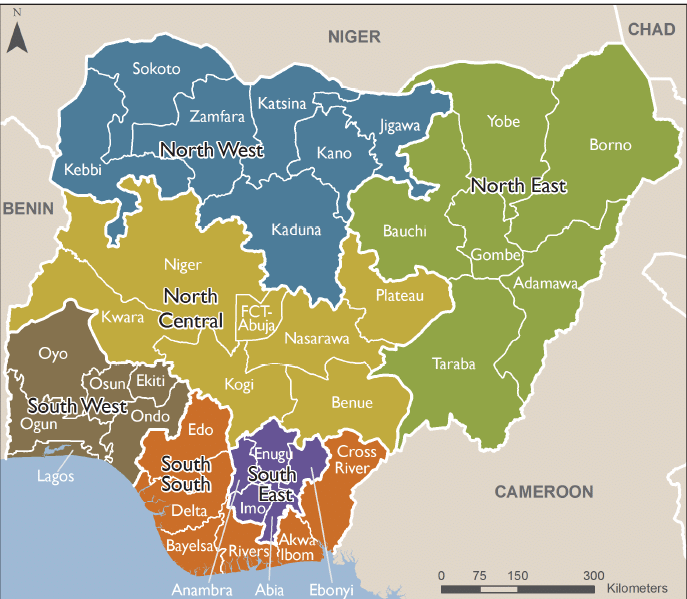



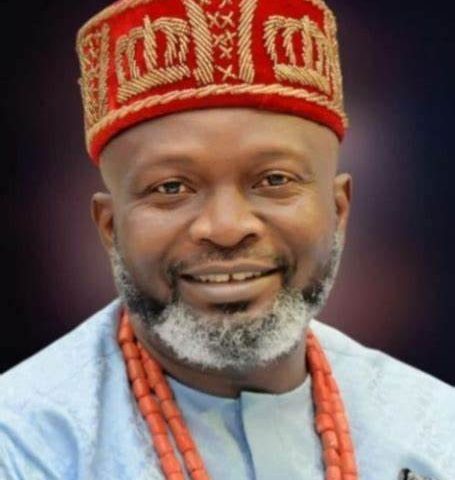
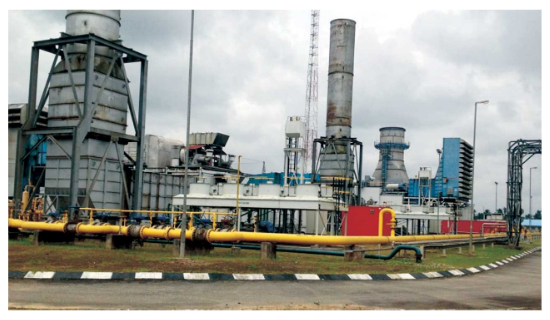









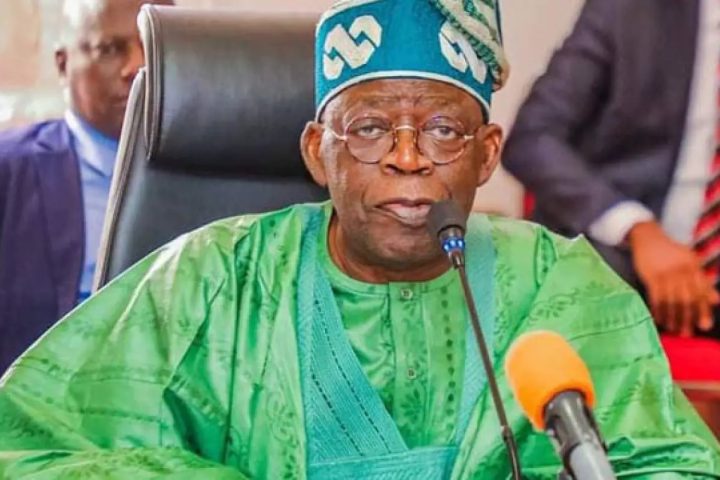
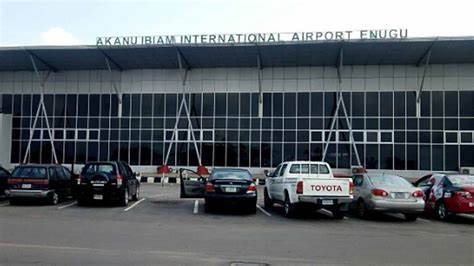
Follow Us